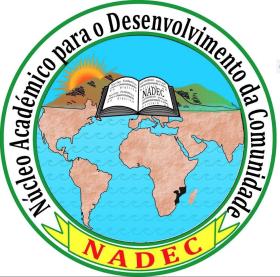Les connaissances et la gouvernance autochtones peuvent atténuer le changement climatique et préserver la culture
Oil companies are paying billions towards development in the Niger Delta, but it’s having little impact on the ground, say Tijah Bolton-Akpan and Miles Litvinoff.
When Talabitti’s husband died in 2016, her claim to the family land seemed to die with him. Though her husband had worked the family land by himself, upon his death his male cousins laid their claim. If Talabitti attempted to make a competing claim, they threatened to drive her away – with violence, if necessary. Sadly, this threat materialized.
Ce webinaire explorera cette intersection à l'aide d'histoires provenant de tout le continent. Les intervenants montreront comment la corruption sape les programmes d'équité foncière conçus pour lutter contre la concentration des richesses et l'inégalité dans le secteur foncier en Afrique du Sud, et comment la corruption exacerbe la marginalisation historique de la communauté nubienne au Kenya, entre autres exemples. Les intervenants examineront également comment les gouvernements et la société civile peuvent répondre efficacement aux résultats de la recherche, en mettant l'accent sur les politiques et les campagnes qui promeuvent la responsabilité et la transparence de l'information dans la gouvernance foncière.
Ce webinaire abordera les implications de la décision rendue dans l'affaire Maledu, l'importance de la reconnaissance et de la protection des droits fonciers informels, le pouvoir de l'accès à l'information et les résultats positifs que la sécurité tenure peut avoir pour les communautés affectées par l'exploitation minière. Il examinera les impacts du jugement pour la communauté et explorera la façon dont les membres de la communauté se sont engagés avec la compagnie minière.
Le webinaire permettra d'entendre des bailleurs de fonds parler de leur expérience et des défis qu'ils rencontrent pour rendre les subventions plus inclusives ; de donner des indications sur la mesure de l'inclusivité ; et de poser des questions et d'en discuter sur la façon dont les bailleurs de fonds peuvent utiliser des informations fondées sur des données pour éclairer leurs décisions en matière de financement des investissements dans la gouvernance foncière.
(Paris, Yangon) Myanmar may soon face a land conflict epidemic as a result of the growing influx of investments and the consequent demand for land, unless laws and policies that adequately address land rights issues are urgently adopted and implemented, FIDH warned in a new report published today.
Traditionally, in the context of environment and natural resources management, many communication efforts have focused on the dissemination of technical information to end-users who were expected to adopt them. Development practitioners were trying to ‘push’ their products on communities in order to receive community commitment to their development initiatives.
This synthesis of our findings from an investigation of tenure risk in East, West, and Southern Africa, shows that a majority of tenure disputes are caused by the displacement of local peoples, indicating that companies and investors are not doing enough to understand competing claims to the land they acquire or lease. This failure in diligence is particularly noteworthy given that a majority of the disputes analyzed had materially significant impacts: indeed, a higher proportion of projects in Africa are financially impacted by tenure dispute than any other region in the world.











